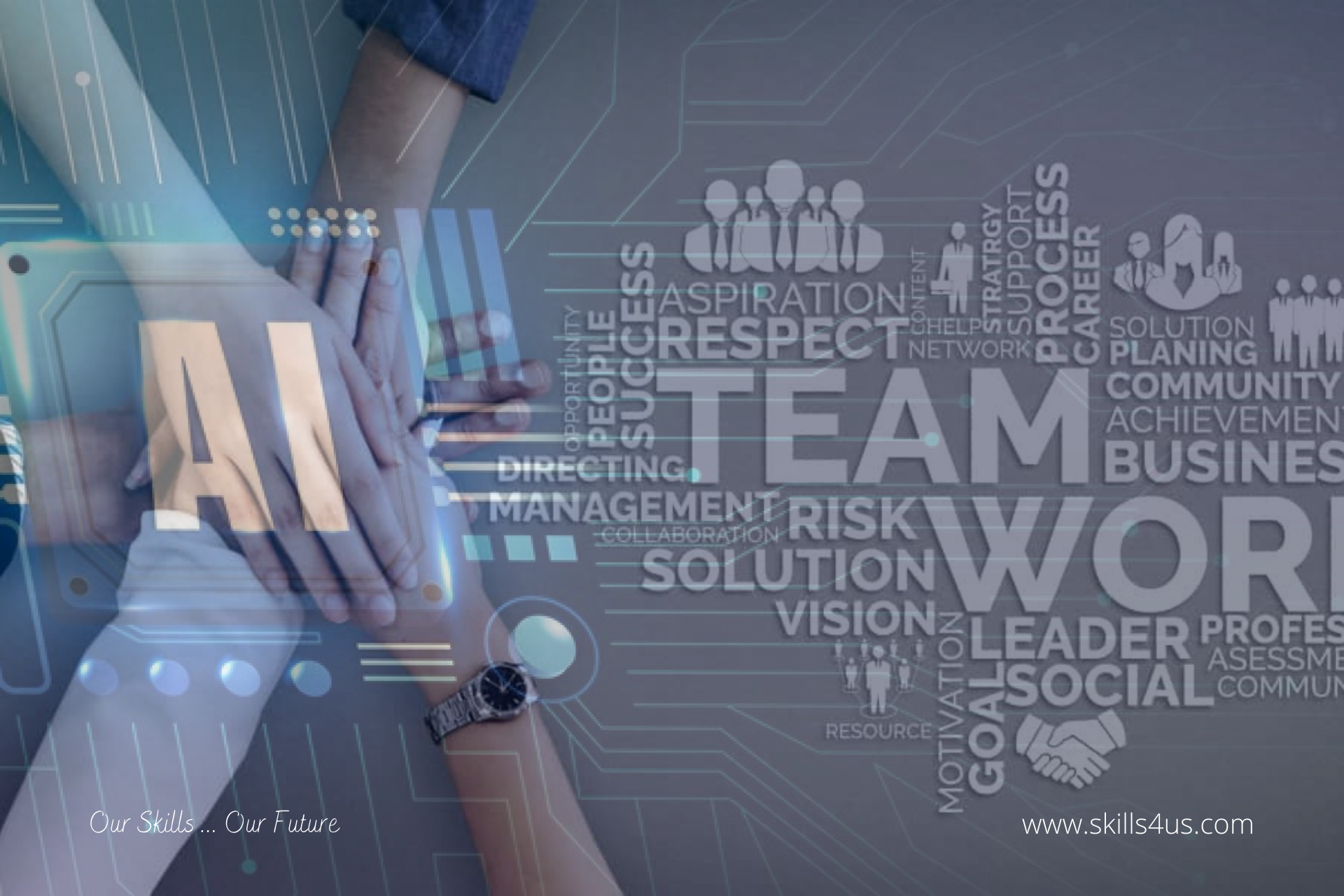As organizations continue to grow and expand, so do their workforces. In a time with the emergence of AI it has a transformative impact on team interactions and improving performance. It started as a tool to automate simple tasks and then evolved to perform complex tasks such as analyzing data and making decisions. However, we have only recently begun to see how powerful it is and its impact on the productivity of work teams. As we continue to delve deeper into the digital age, it is essential to recognize AI capabilities enhance teamwork.
Benefits of using AI in teamwork
1. Clarify roles and track progress
AI can clarify each employee’s role and responsibilities. Additionally, it can track progress, remind team members of deadlines, and even predict potential delays, helping teams stay on top of their work. This results in a clear understanding of what needs to be done and enhances productivity and a sense of ownership among team members.
2. Enhancing the smooth flow of information movement
AI simplifies communication channels, promoting the smooth flow of information movement and making it easier for team members to communicate effectively. Furthermore, using AI informs managers of their team’s communication trends and dynamics, enabling them to address communication gaps.
3. Changing the business dynamic
AI can analyze goals and expected outcomes, allowing team members to focus on strategic thinking and creative problem-solving. It changes the work dynamic, as team members can devote their time and mental energy toward more satisfying and challenging aspects of their roles.
4. Managing and controlling distractions and waste at work
AI helps manage distractions at work by streamlining processes, automating notifications, managing workflow, keeping team members focused on tasks, and building their most valuable skills. Therefore, it reduces the wastage of time in non-productive activities, enabling team members to move directly to productive work.
5. Stimulate the creative thinking process
AI, with its pattern recognition capabilities and predictive analytics, can help inspire new ideas by providing unexpected insights or suggestions. Note that it stimulates the thinking process by showing patterns or trends that a person may ignore, thus providing a new perspective and enhancing creative thinking. Moreover, it can present various data-driven ideas, motivating team members to think outside the box and develop innovative solutions.
6. Promote a culture of welcoming and valuing all ideas
AI encourages unconventional thinking by providing unique insights and challenging conventional approaches. In addition, it suggests multiple ways and methods to deal with the problem. Also, it promotes a culture of welcoming and evaluating all ideas, which stimulates participation and enhances the creative atmosphere within the team.
7. Increased confidence and speed of decision-making
AI can analyze a high volume of data to identify patterns, make predictions, and identify potential risks and opportunities more quickly. Thus, it increases the confidence of team leaders and allows them to act swiftly and make informed decisions. Furthermore, AI-based decision-making can help teams make more accurate and unbiased decisions, increasing efficiency and better outcomes.
8. Promoting independence
AI can promote autonomy among team members by providing them with the resources and tools to solve problems and complete tasks independently. It can also offer insights, suggestions, and even tutorials that enable team members to handle various tasks independently.
9. Track and evaluate performance
AI provides a more effective way to track and evaluate employee performance by using data science to accurately measure employee performance and productivity in real-time, allowing managers to manage their teams proactively. This results in a more supportive work environment and better employee engagement, leading to a more productive team.
10. Ensuring the acquisition of new skills and knowledge
AI-powered training programs ensure that employees can acquire new knowledge and skills knowledge at their own pace, regardless of location or time zone. Additionally, AI capabilities allow managers to understand their employees’ strengths and weaknesses and provide personalized coaching to help them grow professionally, ensuring employees feel supported and valued.
11. Contributing to personal growth
AI handling data-driven tasks allows team members to grow personally and focus on improving their leadership, critical thinking, creativity, and emotional intelligence skills. In addition, it enables them to focus on building relationships, developing strategies, and creating innovative solutions.
12. Achieve work-life balance
AI analyzes work patterns and task completion times and then makes recommendations for distributing the workload, ensuring that no one is overworked or underutilized. This promotes a balanced and harmonious work environment, crucial to maintaining team morale and productivity. This leads to more efficient work and reduced fatigue, thus contributing to a work-life balance.
The presence of AI is reshaping our world, and as organizations find ways to use AI to achieve competitive advantage, they also face challenges. Concerns include AI bias, government regulation of AI, data management required for machine learning projects, and talent shortages.
